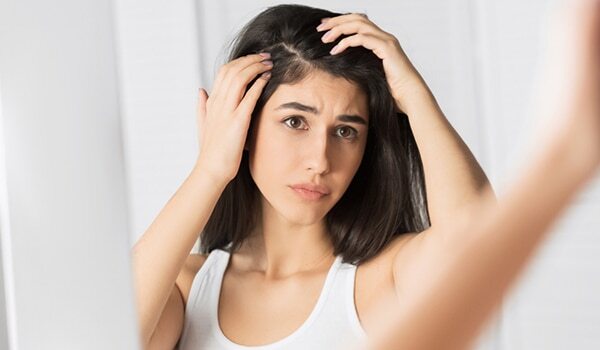Up until now, we'd heard of dandruff bringing our hair game down drastically. This common scalp condition causes flakes of skin to appear and is accompanied by itching. Hair that grows from dandruff-affected scalp suffers more protein and cuticle damage as compared to hair that grows from a healthy scalp. Moreover, scratching can further damage your tresses, causing breakage and split ends. Oh, and wait, your dandruff woes don't end here! It does more damage than you could even imagine! Did you know that dandruff, if not treated, can soon spread to your skin as well? Yes, you read that right. Surprisingly, dandruff is not just limited to your scalp. The dry skin that you sometimes see around your nose area or near your eyebrows is not just a regular 'dry skin' problem. It could, in fact, be facial dandruff! How does dandruff affect your skin? The effects of dandruff usually depend on your skin type—dry or oily. If the area around your nose and between your eyebrows or your T-zone feels scaly and dry or greasy, it is a sign that dandruff has started affecting your skin. And if not treated, you may also experience scaly, greasy and inflamed skin on your upper back and chest area. And that's not all! Dandruff can also cause one of the worst skin problems... acne! Dandruff makes the skin on your scalp flaky and these dry flakes are often responsible for clogging the pores on your face, mostly affecting the skin on your forehead, and spreading to the neck, hairline, upper back and chest. Also, if you experience crusty or redness on or behind your ears, it is a common indication of facial dandruff. How to prevent dandruff from bringing your skin game down?
Natural Argan Oil & Lavender Sulfate Free Anti-Frizz Shampoo - 400ml
₹658
₹658
SHOP NOW








